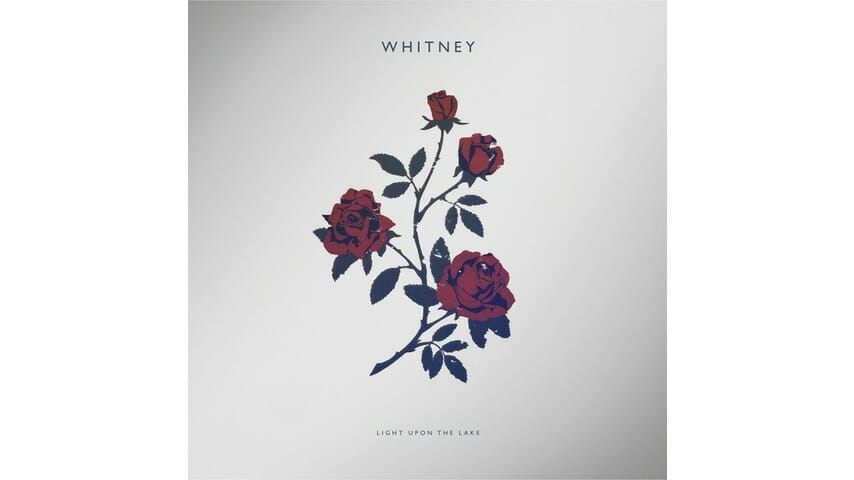Whitney: Light Upon The Lake

When Whitney released “No Woman”—the first of two singles off of their debut album Light Upon the Lake—it seemed too good to be their first release. The track was just the right meld of expertly noodly guitar leads, faint falsettos, lullaby piano and bombastic horns. In reality, it’s not truly the band’s first effort.
Max Kakacek and Julien Ehrlich, Whitney’s songwriting duo, have been preparing to release this debut album since shortly after their last band, the Smith Westerns, split in 2014.
The Smith Westerns were kind of the princes of underground-esque indie rock, carrying the mantle of the slurry, dream pop sound made popular in the early 2010s with bands like Beach Fossils and Washed Out. When they broke up, members splintered into two different projects: lead singer Cullen Omori’s solo work, which sounds decidedly more inline with the band’s old stuff, and Whitney.
To forge this band, Julien adopted the role of singer and co-songwriter. This was a new role for Julien, who had also previously spent time as drummer for Unknown Mortal Orchestra, but he assumed it confidently.
-

-

-

-

- Curated Home Page Articles By Test Admin October 21, 2025 | 3:10pm
-

- Curated Home Page Articles By Test Admin October 21, 2025 | 2:57pm
- Urls By Test Admin October 21, 2025 | 2:57pm
- Curated Home Page Articles By Test Admin October 21, 2025 | 2:55pm
-

-

-

-

-

-

-

-

-

-

-

-

-

-

-

-

-

-

-

-

-

-

-

-

-

-

-

-

-

-

-




































